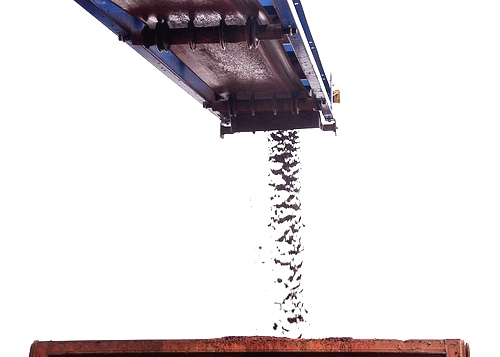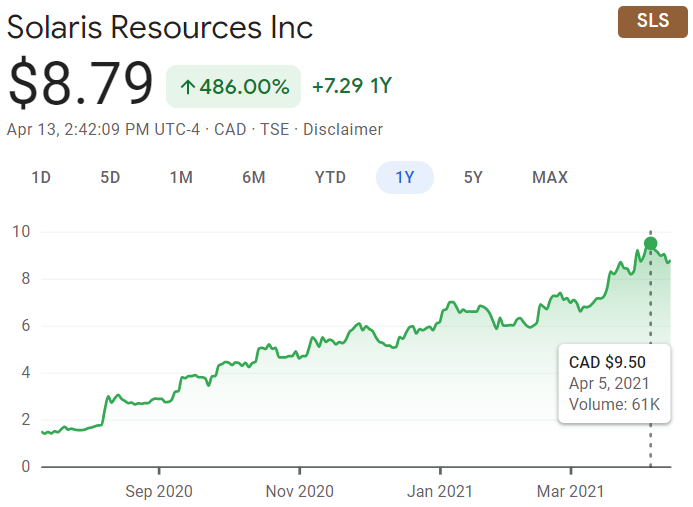
Iron ore is the key ingredient used to make steel. The majority of the seaborne trade, that is, iron to be shipped to other countries, goes to China.
An oligopoly exists today whereby China is forced to rely on Big 3 producers Vale, Rio Tinto and BHP Billiton for over 60% of its imports at arguably inflated costs.
This is primarily because domestic Chinese production is very high cost and very low grade. Given 7 of the world’s top 11 steel producers are Chinese, it is rational to assume China’s appetite for foreign sources of iron ore will remain strong for the foreseeable future. We published an article on February 1, 2013, titled “Wuhan Iron to buy more overseas mining assets” because we felt that this was a strong signal that Canadian iron ore resources will be on investors’ and steelmakers’ radar over the next few years.
In the article, Government owned Wuhan Iron and Steel (Group) Corp, China’s fourth-largest steelmaker by output, said it plans to achieve 100% self-sufficiency in three to five years and abandon its heavy reliance on the Big 3 by investing directly in iron ore resources in Canada and Brazil.
Chinese steelmakers have been looking to Canada, and in particular the Labrador Trough, as a source for high quality long term supply of iron ore in a safe jurisdiction. Steel companies typically invest in smaller owners of iron ore resources, and enter into an offtake agreement to purchase a portion of their mine production. Wuhan and China’s largest steelmaker, Hebei Steel, have already made investments in projects in the Labrador Trough.
I decided to take a closer look at some of the iron companies in Canada. Most are large and well established and therefore out of our junior filter. Of the juniors, one stood out because of its large valuation gap.
Iron ore deposits in Ungava Bay, Quebec
The Hopes Advance project in Ungava Bay, Northern Quebec is a large, high-quality iron ore deposit on the northern end of the Labrador Trough which, at full capacity, will be the largest operating iron ore mine in North America. It also has potential to become one of the world’s lowest operating-cost iron ore producers.
Hopes Advance’s competitive advantage is its location on the coast. Product will be transported directly from the processing plant onto a ship using a concentrate pipeline with no need for any rail reducing the average life-of-mine operating costs to an estimated $30.18 / tonne, which is firmly in the lowest quartile of operating costs for iron ore producers globally.
Oceanic Iron Ore (Stock Profile – TSXV:FEO & OTCPK:FEOVF) is the company that owns the Hopes Advance project and it currently has a ~$35 million market cap, which indicates that investors aren’t paying much attention to FEO’s $5.63 billion pre-tax NPV. The next critical step for Oceanic is securing the right strategic partner to assist with the $2.85 billion capital build to put the project into production. No easy feat in this market.
I had an opportunity to meet with the Oceanic senior-management team and get some of their perspectives on the project. We spoke with Steven Dean, Chairman and CEO, and Alan Gorman, President and COO. Our conversation focused on the reasons why Oceanic should be able to attract a strategic partner.
The partner that Dean and his management team are looking for will likely be a Chinese or other global steel company looking to secure a long term high quality iron ore supply with scale at a low operating cost in order to help to satisfy long term supply requirements and provide leverage in negotiations with the Big 3.
Oceanic believes its Hopes Advance project is very competitive in today’s iron ore market. “Those [projects] that have low operating costs and high-quality large-scale reserves always stand head and shoulders above the peer group, not only domestically, but globally, and that’s what we have,” Gorman told us.
“The team understands that the project needs a partner to keep advancing,” Dean told us, “Clearly, the next catalyst for value will be when we secure our strategic partner because with that partner comes the capacity to finance and therefore make the NPV of $5.6B that much closer to reality.”
Oceanic’s Pre-Feasbility Study was released in October 2012 and, since then, the management team has been evaluating the iron and steel space for potential partners. Dean and Gorman tell us that there are 30-50 companies capable of partnering with a project like this, and the company is engaged in discussions with 10-12 parties currently.
With the announcement last week that CN is delaying, and may walk away from, the rail feasibility study that would serve the transportation needs of many other development stage iron ore projects in Canada, Oceanic’s “no rail advantage” and control over its own infrastructure and schedule, certainly look more compelling today than before.
Dean is the former President of Teck Cominco (now Teck Resources), and was a member of the founding management team of Normandy Mining, helping to build both multi-billion dollar resources companies. Gorman has over 30 years’ experience developing projects in the North, including Jien Canada Mining’s Nunavik Nickel project and Canada’s most famous iron ore venture, Baffinland’s Mary River project.
One of the largest shareholders is resource mogul Frank Giustra. “My average cost in FEO is higher than where the shares trade today and I am with the company for the long term,” said Giustra.
U.S Global Investors is another noteworthy shareholder. Chief Executive Frank Holmes commented, “We look for strong proven leadership and Steven Dean is in the top 1% of his peers. We also look for the optionality of a large iron ore resource which Oceanic demonstrates in a mining friendly community. This is why we are large investors.”
When I made the decision to invest in an iron project, we chose Oceanic for three reasons: value gap, projected lowest quartile operating costs globally, and management. Recent insider buying gives us the confidence that this was a worthwhile decision.
Disclosure: At publication date MiningFeeds Contributing Editor Tommy Humphreys owns shares in Oceanic Iron Ore and Oceanic Iron Ore paid for the production of the video content embedded in this article.



 Follow us on Twitter
Follow us on Twitter Become our facebook fan
Become our facebook fan











Comments are closed.